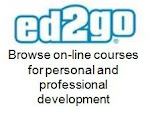
Everyone thinks they have a great resume. In reality most resumes could stand to be refreshed or even overhauled if they’ve been on the shelf for a while. You've become so accustomed to looking at your resume that you've likely convinced yourself of its brilliance. So set your ego aside for a bit and allow some objectivity to flow. And accept the fact that a true refresh of the resume will take time and effort. Make the update a priority over the course of a week, the job will get done.
I critique resumes each week and recognize frequent missteps you can avoid and common sense techniques you can follow to refresh your document. Here are several
outdated beliefs on resume writing, along with some
updated thinking:
Outdated: A resume should include a complete chronology of your career activities from college to present.
Updated: A resume is a business document and needs to be concise and on point. Avoid writing a career obituary with every detail of your journey. Choose your content for maximum impact, using a nice variety of action verbs throughout.
Outdated: A functional (also called a
skills based resume) is the best format for candidates in transition, job hoppers and those with employment gaps.
Updated: Avoid a purely functional format. In theory, this format has merit but recruiters and hiring personnel hate connecting the dots of a functional resume.
Outdated: Use a general,
one size fits all resume and a detailed cover letter.
Updated: The message that career development geeks, like myself, are trying to convey is that the resume is your No.1 personal marketing tool. It needs to sell you to each and every reader. Infuse two to four branding titles (job titles you have held or functional areas in which you excel) into the heading. Then make sure the resume content focuses on solid descriptions of your skills, strengths and areas of expertise; and includes strong (quantify whenever possible) examples of your work related accomplishments. However, when crafting the content to sell yourself, never embellish or lie on a resume, it will come back to bite you!
Outdated: Include a strong
Objective statement to target the type of role and employer you are seeking.
Updated: If the resume has an
Objective statement, throw it out! These are tired and outdated, even for the recent graduate.
Objective statements send the message that “I, as the candidate, am looking for this type of role with this type of employer”. Brace yourself for this news flash; employers don’t care what you are looking for in your job search. They take the position that by submitting your resume, you’ve done your homework, and you’ve researched the organization and the specific job you’re seeking.
Outdated: Lead off with a
Summary to outline the scope of your background.
Updated: Use a
Profile section instead of an
Summary. When creating a profile, include a short, focused narrative to describe the scope of your background. This is then reinforced with bulleted key terms outlining core skills and strengths. Rather than using a one size fits all resume, the profile section allows you to focus on a specific occupation/role. By customizing your profile, you’re creating a separate resume for each distinct position being pursued.
Outdated: Under each career position, provide a detailed list of your responsibilities and duties.
Updated: If you include a bulleted, laundry list of job duties under each career position you will bore the reader to death. Include a concise narrative of your responsibilities supported by bullet points highlighting your achievements. Selected achievements, combined with data on skills and strengths, communicate the value that you can bring to an organization. And this value is what employers focus on for selection of new talent.
Outdated: Stick to a one page resume.
Updated: A two page resume is perfectly acceptable, as long as it conveys strengths, expertise and accomplishments. Two pages of laundry list info and fluff is not acceptable. When feasible, include sections for
Awards and Honors, Professional Affiliations, Community Affiliations, and
Professional Development Activity. This conveys a greater scope and depth to your background.
Outdated: Craft a resume that is easy to cut and paste to web sites.
Updated: We have finally evolved from the era of the ugly cut and paste resume, and can now attach and upload a pdf or word file. Just remember to make the document pleasing to the eye. A resume should be content rich and visually appealing. Use formatting features (font type, bold, italic, underline, etc.) to draw the reader’s eye to specific content.
Outdated: End the resume with the following, “References Available Upon Request”.
Updated: No need to include this line item, it is understood. Prepare a separate handout of 3-5 professional references with complete contact information for each party listed.
Bottom line, any resume must pass the “7-10 second rule”. You have 7-10 seconds to grab the reader’s interest and invite them to read further. Follow these suggestions, and you will be well on your way to creating a document with fresh appeal and greater impact. Don’t be afraid to ask others for feedback on the draft of the new resume. And don’t be afraid to engage the help of a
certified career coach or resume writer, as an investment in your primary marketing tool.
 Let me tell you about a very simple, low cost, yet highly effective marketing tool for your job search strategy. I call it the ProCard and it is essential for your job search and professional networking activity. Here’s how it works…
Let me tell you about a very simple, low cost, yet highly effective marketing tool for your job search strategy. I call it the ProCard and it is essential for your job search and professional networking activity. Here’s how it works…
















